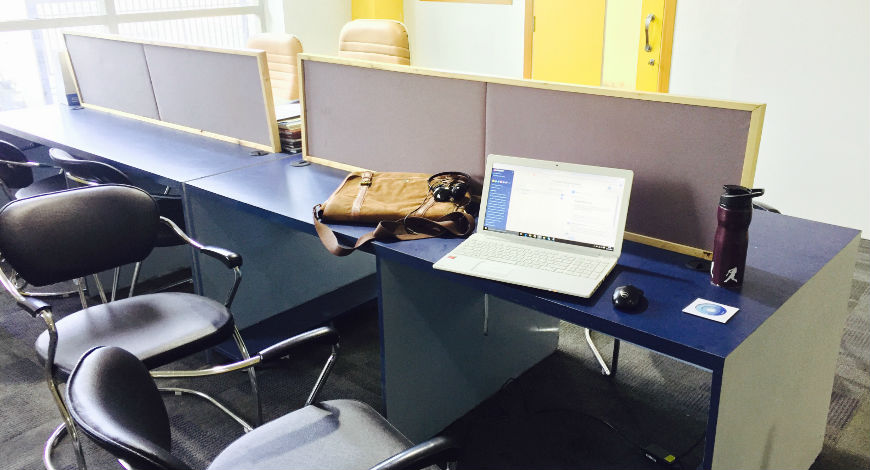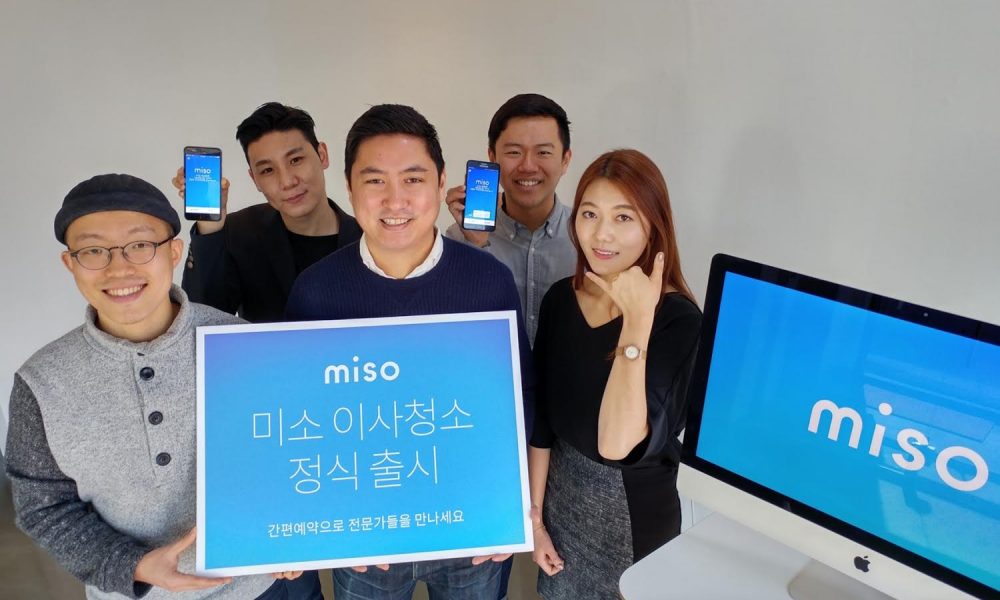Month: March 2017
Chinese women’s clothing rental platform – Dora’s Dream closes US$12 million series A
Following Chinese online dress rental platform MSParis US$18 million funding led by Northern Light Venture, Chengdu-based women’s clothes rental platform Dora’s Dream has also closed a Legend Capital-led US$12 million series A+ round which was also participated by Shanghai-based apparel maker La Chapelle Fashion.
Commenting on the investment, Jin Weiji, a partner at Legend said, “The Chinese consumer sector is entering a ‘sharing era.’ The sharing economy now exists across our daily lives, including transport, hotels, and fashion. Dora’s Dream provides young ladies with a fashion sharing platform that is innovative and follows the trend of consumer upgrade.”
He further notes that Legend has also investments in other shared-economy companies, including China Auto Rental Holdings Inc., as well as Uoko and Xiaozhu in the home accommodation sector.
Founded in 2015, Dora’s Dream provides daily clothes for young women in tier-two and tier-three cities, providing them a subscription rental solution to solve their needs for fashion brands, whereby they can rent fashion brands instead of purchasing and having it cluster at their wardrobes.
The platform currently provides its users with more than 16 combinations of membership selections whereby users can choose from time-lapse categories of 1, 3, 6, and 12 months paired with the maximum number of clothing piece from 1, 3, 6, and 9 which will vary from a price range between RMB 99 and RMB 8064.
At present, Dora’s Dream wardrobe of shared clothing has a stock keeping unit (SKU) reaching 500,000 in addition to partnerships with multiple brands and more than 100 designers. The startup also claims that since September, the annual membership system has seen more than 1/3 of users selecting the more than 1-month subscription service.
Dora’s Dream also asserts that from March 2016 to the end of 2016, the platform has more than 60,000 paying customers in addition to 500,000 registered users, mainly from Sichuan, Guangdong, and Zhejiang.
With the latest capital, Dora’s Dream will use the capital to further enhance its flexibility of supply chain in order to solve the clothing turnover rate and virality as well as to introduce new brands to achieve the diversification of platform clothing and to increase platform’s brand awareness and confidence.
In China, the sharing-leasing of fast fashion clothing is a market with great potential as speaking on the investment, La Chapelle‘s CEO Wang Yong said, “Investing in Dora’s Dream is because we have developed a liking for their subscription model, as well as their production chain from washing to quality inspection to delivery, which forms a closed operation model.”
By Vivian Foo, Unicorn Media
Makaan co-founder launches The Office Pass to provide co-working spaces in India
Having quit the real estate portal in December last year, Aditya Verma, the co-founder of real estate company Makaan.com is back to launch a co-working space provider known as The Office Pass.
Operating under Top Technologies Pvt. Ltd., The Office Pass is a technology platform that connects freelancers to micro small and medium enterprises with office spaces nearby which are rented as co-working spaces.
“The advances in the sharing economy will rub off in the commercial real estate sector as well. So people now share cabs and homes through Uber and Airbnb. We believe people will start sharing offices as well, where they work with other firms’ employees,” explained Verma.
In India’s new offices, these co-working spaces are a practicality and similarly run as real estate businesses, where owners and developers convert vacant office space into co-working spaces which are capital-intensive and difficult to scale.
Opening its first facility in Sohna Road, Gurgaon, The Office Pass practice a similar business model and will be inaugurated today with its first six paid customers. Besides, the startup also claims to be in the process of closing a seed investment round worth between US$200K and US$300K from several seasoned investors and companies based out of the US.
With the funding, Verma says that it will have sufficient capital to sustain the company’s operation for the next 15 to 18 months, in addition, to further develop the platform and increase the headcount of its five-member team.
Besides Verma, The Office Pass also has another two co-founders who are still in stealth mode as they are in the process of leaving their current assignments.
Makaan.com Pvt. Ltd was earlier a part of Anupam Mittal-founded People Group, which is also behind tech ventures such as matrimonial site Shaadi.com and Mauj Mobile. In April 2015, Makaan.com has been acquired by News Corp-owned online property broker PropTiger.
Co-working spaces have brought a wave of change in India as many companies and freelancers are switching to office-less companies. Likewise, The co-working space segment in India has also piqued investor’s interest in the past two months.
Last month, Innov8 has raised angel funding from Venture Catalysts and individual investors such as Paytm’s Vijay Shekhar Sharma, Google’s Rajan Anandan, and others through the LetsVenture platform.
While in January, Gurgaon-based InstaOffice has recently raised its pre-Series A funding led by online venture capital platform Globevestor and other angel investors, including Toppr’s Zishaan Hayath.
By Vivian Foo, Unicorn Media
Chinese robot vacuum maker ECOVACS to IPO on Shanghai Stock Exchange
ECOVAS Robotics Co., Ltd., a Chinese robot vacuum maker backed by IDG Capital has filed with the country’s securities regulator for an initial public offering (IPO) on the Shanghai Stock Exchange.
Founded in 1998 by Chinese entrepreneur Qian Dongqi, Jiangsu province-based ECOVACS was initially an electronics manufacturer making vacuums for Philips, Panasonic, and Electrolux as an original equipment manufacturer (OEM).
In 2000, the company moved up from the lower-end of the manufacturing factories to becoming a technology enterprise with in-house research and development capability to obtain core technology competence.
Since then, ECOVACS has continued to invest in research and development, while beginning to focus on robot vacuums and robot home appliances in 2004 after Qi saw iRobot’s popular robot cleaners.
At present, the company sells a range of products in over 30 countries including robot floor cleaner, robot window cleaner, mobile air cleaner, and humidifier, as well as home entertainment and security robots.
Currently employing more than 5,000 people with corporate offices in Canton Ohio, Dusseldorf Germany, Tokyo Japan and Suzhou city in China, ECOVACS claims to be China’s number one robot home appliances maker with a 65% market share.
In 2013, IDG Capital invested an undisclosed amount in ECOVACS in exchange for a 10 percent stake in the company. The venture firm’s stake was reduced to 9.12 percent as the company conducted a shareholder restructuring after it decided to list domestically, instead of the initial plan in the United States.
However, in spite of having filed an IPO prospectus to complete an IPO, companies in China must wait in queue for a few years before IPO, as there are currently over 800 companies waiting in line to be permitted to complete their listings.
By Vivian Foo, Unicorn Media
South Korean home cleaning startup Miso launches on demand moving-out cleaning service
Miso, a home cleaning online-to-offline (O2O) service startup in South Korea announced on February 27 about the official launch of its moving out cleaning service beginning this March.
Speaking on the launch, a spokesperson from Miso said, “We will improve the inconvenient reservation system and pricing structure based on our diverse know-hows and big data collected from previous housekeeping experience.”
Established in August 2015, Miso connects customers to high-quality housekeeping service using a simple reservation system. Starting this March, its platform has also begun to offer moving out cleaning services as due to the increased demand from customers.
Miso is founded by Haksu Lee who previously ran his own startup Anbado Video along with Victor Ching who was previously a CTO at Seoul-based food delivery startup Yogjyo before its acquisition by Delivery Hero in 2014. Their experience has influenced the buildup of Miso, engineering the platform development towards convenience.
“The Miso app allows users to easily reserve the time and date for hiring a cleaning service. We can predict cleaners’ schedules and assign jobs to them effectively avoiding the hassle for both housekeepers and users,” said a spokesperson of Miso.
On top of that, the pricing in the platform is made transparent and reasonable for both customers and professional housekeepers. For its recent launched moving out cleaning service, Miso will also offer special inspections and after-sale services for an entire day of moving out.
“Traditionally, businesses offer four or eight-hour services, but they charge you more for the same amount of time depending on the size of your house. I don’t really think that made a lot of sense because you’re still paying for four hours. Some of the pricing structures from other cleaning services look like a mini Excel spreadsheet.” says Miso’s CEO Ching.
“It’s a different pricing table if you want to have a load of laundry done or some kind of cleaning for your fridge. Everything needs an additional fee,” adds Lee. “It’s a big pain point for existing customers and we wanted to simplify it.”
South Korea’s home cleaning service market is worth US$5 billion and gradually increasing due to South Korea’s growth in dual-income households. Since 2005, spending on cleaning services has increased threefold. With 44% of all households being dual income, cleaning services will continue to be in high demand.
As of February 2017, Miso offers the moving out cleaning service in the three major cities of Seoul, Incheon, and Gyeonggi-do, in addition to a standard package o 45,000 won (about US$40) for 4 hours of cleaning.
Miso CEO Victor Ching said, “Miso ensures that people like office workers and two-paycheck couples with busy lives enjoy the moving out cleaning service with its transparent pricing… moving out cleaning requires a lot of attention and effort, and we hope that our customers can live a comfortable and enjoyable live in their new homes, leaving the hard work to us, the professionals.”
With the average Korean home becoming smaller, Miso plans to offer shorter services so that users can pay less and have their homes cleaned more frequently. Miso will also continue to improve the quality of its own customer review analysis algorithm.
By Vivian Foo, Unicorn Media
- ‹ Previous
- 1
- 2
- 3
- 4




